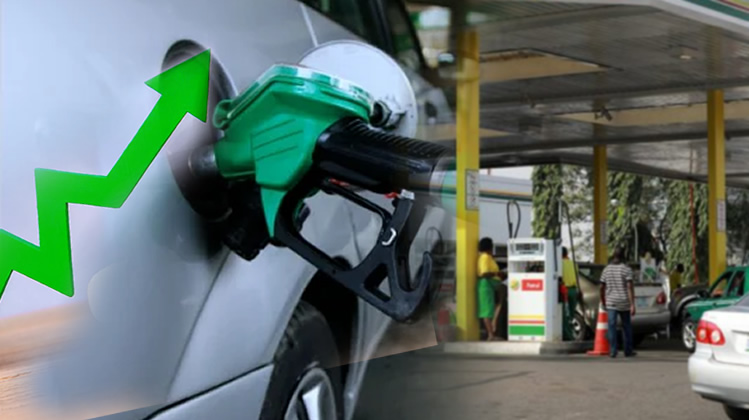
Despite several government interventions to stabilise the price of petrol price in the country, findings have shown that the ex-depot price of the commodity has risen to N237 from N148 per litre in the third quarter of last year.
Data obtained by The PUNCH from a market update report, ‘Industry Data Sheet’ prepared by the Major Oil Marketers Association of Nigeria, revealed that as of March 3, petrol was sold to oil marketers at N237 per litre at Ibafon/Tincan depot compared to N240 per litre it was sold two days earlier.
On March 1-2, marketers bought petrol for N210 per litre at the Satellite Depot, but it rose to N225 per litre as of March 3.
At Apapa depot, the ex-depot price per litre of petrol was N215 on March 1 and dropped to N213 per litre the next day but rose to N218 per litre on March 3.
Petrol scarcity had seen ex-depot price rise from N148 per litre as of the third quarter of last year to over N200 per litre.
The Federal Government earlier this year pegged the ex-depot price at N172 per litre and fixed the pump price at N184 per litre.
However, the National Controller Operations, the Independent Petroleum Marketers Association of Nigeria, Mike Osatuyi, accused depot owners of not complying with the government’s directives. According to him, over 30, 000 members of IPMAN still buy products above N200 per litre at depots and threatened to expose defaulters after the 2023 elections.
Osatuyi explained that the N172 ex-depot price was excluding haulage cost to wherever the marketer was taking the product to.
“If you are taking it further than 400 kilometres from the place of purchase, you are going to get the bridging claims or price equalisation. But if you are taking it within 120 kilometres or around that distance, you will get some little allowance to make you sell at a controlled price.
“But the truth is that we don’t get the product at the controlled price of N172, which is why you see a lot of areas where they sell at higher prices.
“However, for MOMAN, because they get it at the controlled price, they take it from their depots to their stations and sell it at lower prices compared to independent marketers,” he averred.
The Depots and Petroleum Products Marketers Association of Nigeria had told the media that the rising foreign exchange rate had contributed to increasing the price of petroleum products at the depots.
The group also cited illegal levies and the high cost of daughter vessels factoring causing the rise in prices.
The President, Maj. Gen. Muhammadu Buhari-led government had pledged to continue to subsidise petrol until June, leaving the decision whether or not to retain it in the hands of the incoming administration.
The Minister of Finance, Zainab Ahmed, disclosed last year that the country will retain petrol subsidy until mid-2023 and had set aside N3.36trn.
The country spent about N3trn on petrol subsidy between January and September 2022.
The World Bank had accused Nigeria of inefficient use of resources, urging the country to remove subsidies on petrol, electricity and foreign exchange, which it claimed have been most beneficial to the wealthy.
Oil marketers had consistently called for the removal of petrol subsidies and advocated the deregulation of the downstream sector.
Deregulation, according to them, would promote market-driven prices of petroleum products, and foster healthy competition in the downstream sector, which would eventually bring down petrol prices.
“It is important to note that the refining industry as part of the midstream, including petrochemical plants and midstream infrastructure such as jetties, depots, transport, and pipelines, is relatively mature and has only failed as a result of price ceilings and the subsidy policy.
“Therefore, industry experts reckon that the backward integration policy should encourage cost efficiency to enable Nigeria to become a refining hub, competing with other refineries in the sub-Saharan Africa region,” MOMAN said in a recent report.
On what could be the lasting solution to fuel scarcity, IPMAN Chairman Satellite Depot, Akin Akinrinade advised the government to revive the refineries to allow for local production.
“The lasting solution is for the refineries to start functioning and we begin local refining,” he said.





